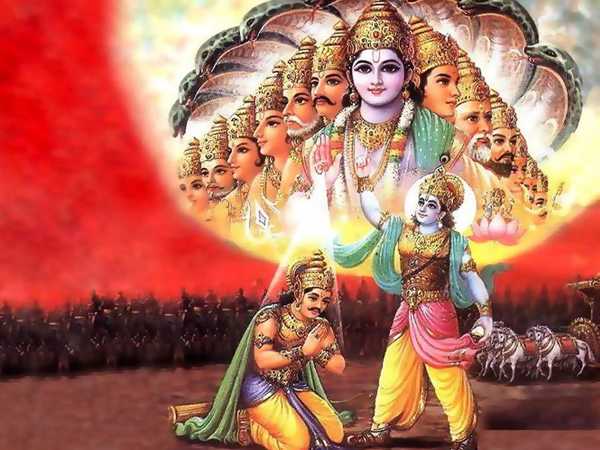Chapter 25

“The Brahmana said, ‘In this connection is recited the ancient story ofwhat the institution is of the Chaturhotra (sacrifice). The ordinancesare now being duly declared of that in its entirety. Listen to me, Oamiable lady, as I declare this wonderful mystery. The agent, theinstrument, the action and Emancipation,–these, O beautiful lady, arethe four sacrificing priests by whom the universe is enveloped. Hear inits entirety the assignment of causes (relating to this topic). The nose,the tongue, the eye, the skin, the ear numbering the fifth, the mind, andthe understanding,–these seven should be understood as being caused by(the knowledge of) qualities. Smell, taste, colour, sound, touch,numbering the fifth, the objects of the mind, and the objects of theunderstanding, these seven are caused by action. He who smells, he whoeats, he who sees, he who speaks, he who hears, numbering the fifth, hewho thinks, and he who understands–these seven should be known as causedby the agent. Possessed of qualities, these enjoy their own qualities,agreeable or disagreeable.[68] As regards the Soul, that is destitute ofqualities. These seven are the causes of Emancipation. With them that arelearned and possessed of sufficient understanding, the qualities, whichare in the position of deities, eat the oblations, each in its properplace, and agreeably to what has been ordained. The person who isdestitute of learning, eating diverse kind of food, becomes seized withthe sense of mineness.[69] Digesting food for himself, he becomes ruinedthrough the sense of mineness. The eating of food that should not beeaten, and the drinking of wine, ruin him. He destroys the food (hetakes), and having destroyed that food, he becomes destroyed himself. Theman of learning, however, being possessed of puissance, destroys his foodfor reproducing it. The minutest transgression does not arise in him fromthe food he takes. Whatever is thought of by the mind, whatever isuttered by speech, whatever is heard by the ear, whatever is seen by theeye, whatever is touched by the (sense of) touch, whatever is smelt bythe nose, constitute oblations of clarified butter which should all,after restraining the senses with the mind numbering the sixth, be pouredinto that fire of high merits which burns within the body, viz., theSoul.[70] The sacrifice constituted by Yoga is going on as regardsmyself. The spring whence that sacrifice proceeds is that which yieldsthe fire of knowledge. The upward life-wind Prana is the Stotra of thatsacrifice. The downward life-wind Apana is its Sastra. The renunciationof everything is the excellent Dakshina of that sacrifice. Consciousness,Mind, and Understanding–these becoming Brahma, are its Hotri, Adhwaryyu,and Udgatri. The Prasastri, his Sastra, is truth.[71] Cessation ofseparate existence (or Emancipation) is the Dakshina. In this connection,people conversant with Narayana recite some Richs. Unto the divineNarayana were animals offered in days of yore.[72] Then are sung someSamanas. On that topic occurs an authority. O timid one, know that thedivine Narayana is the soul of all.'”




